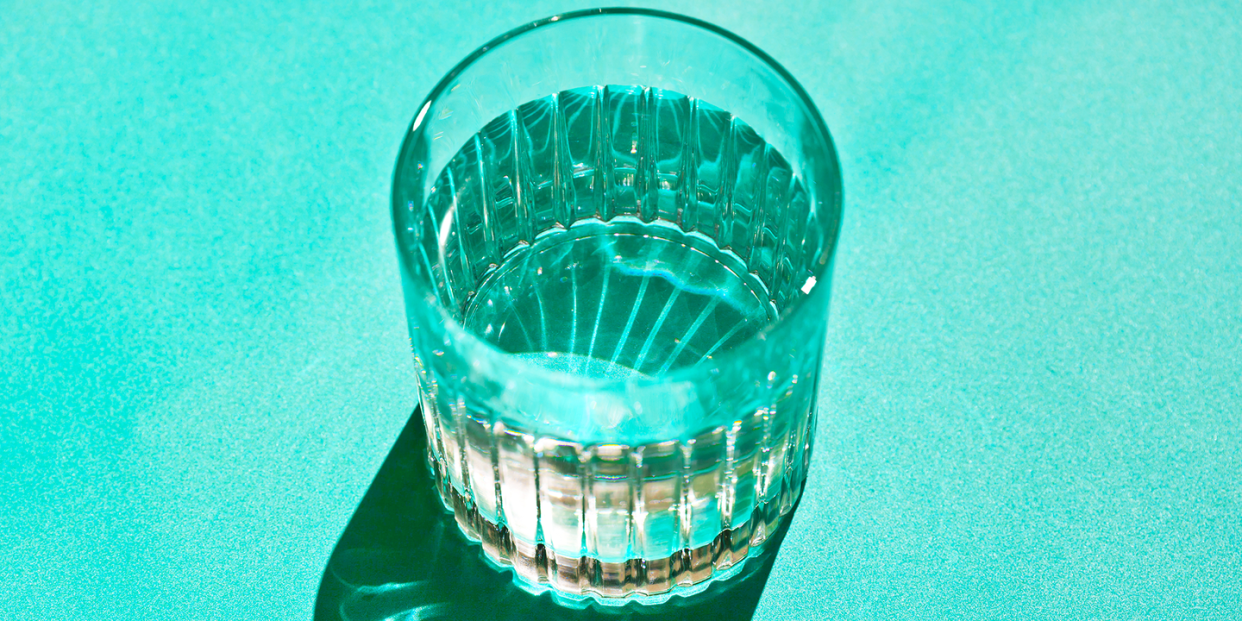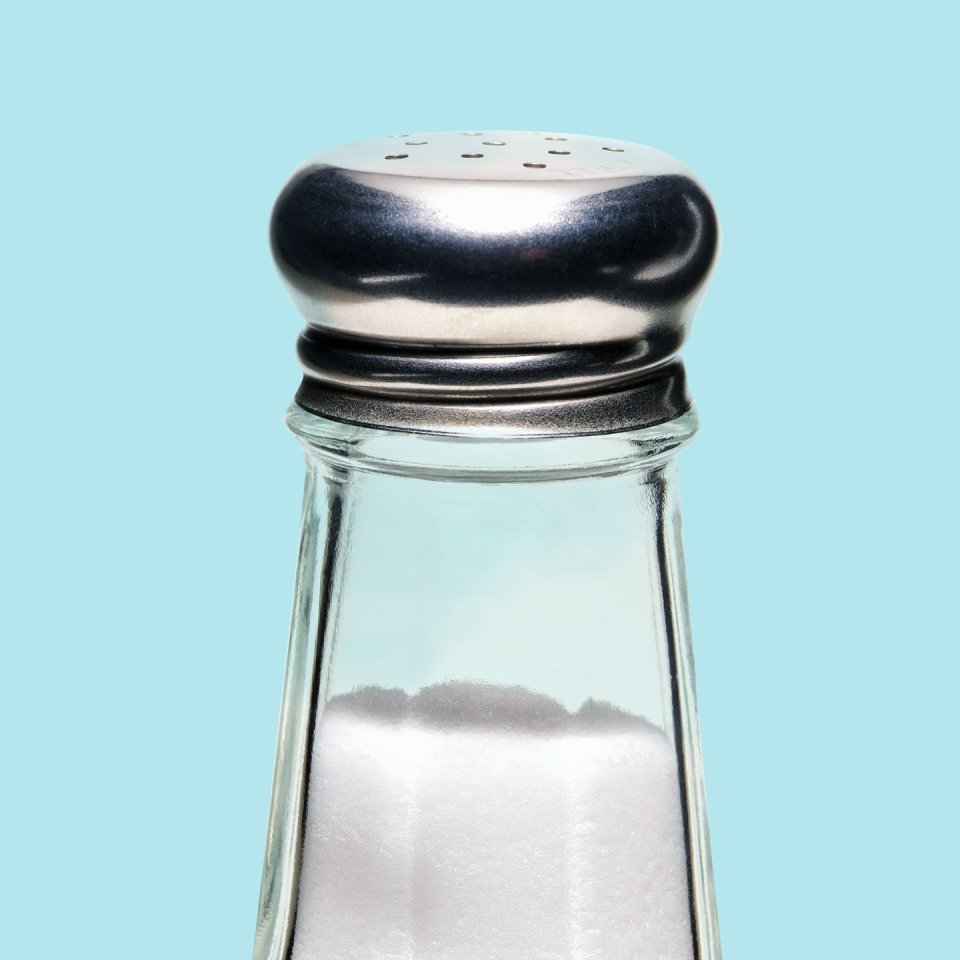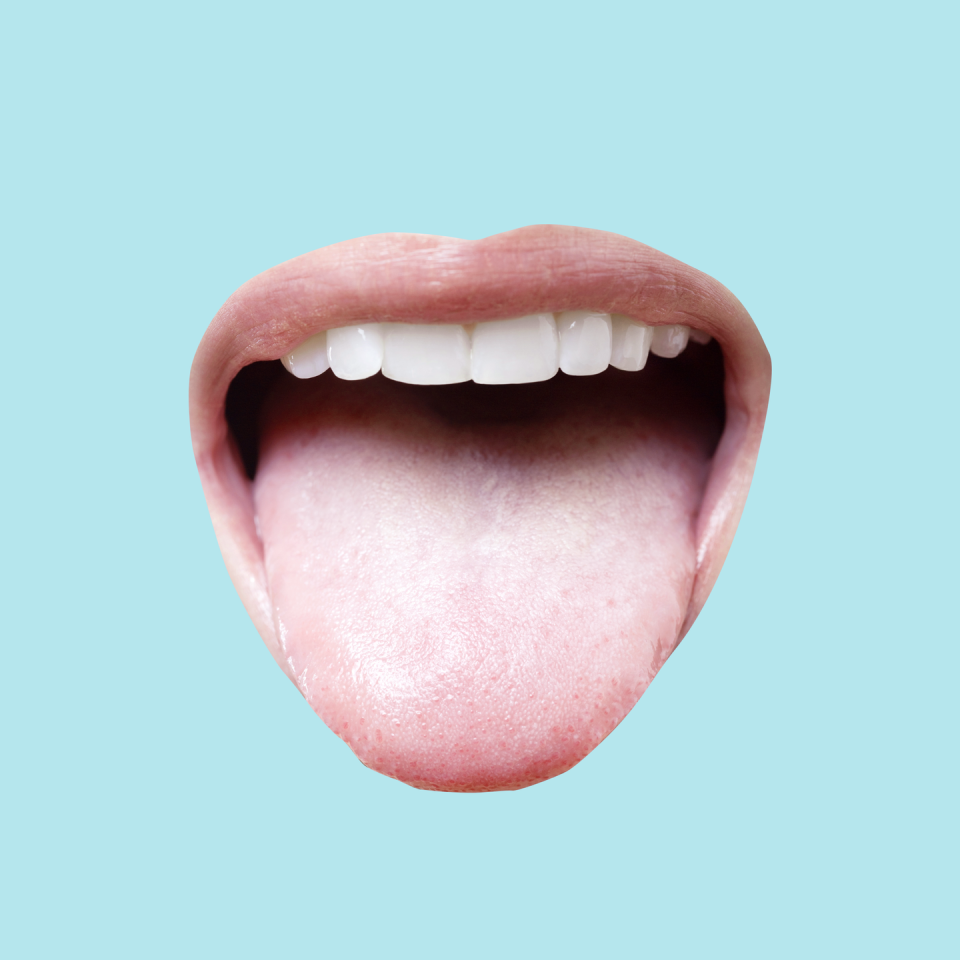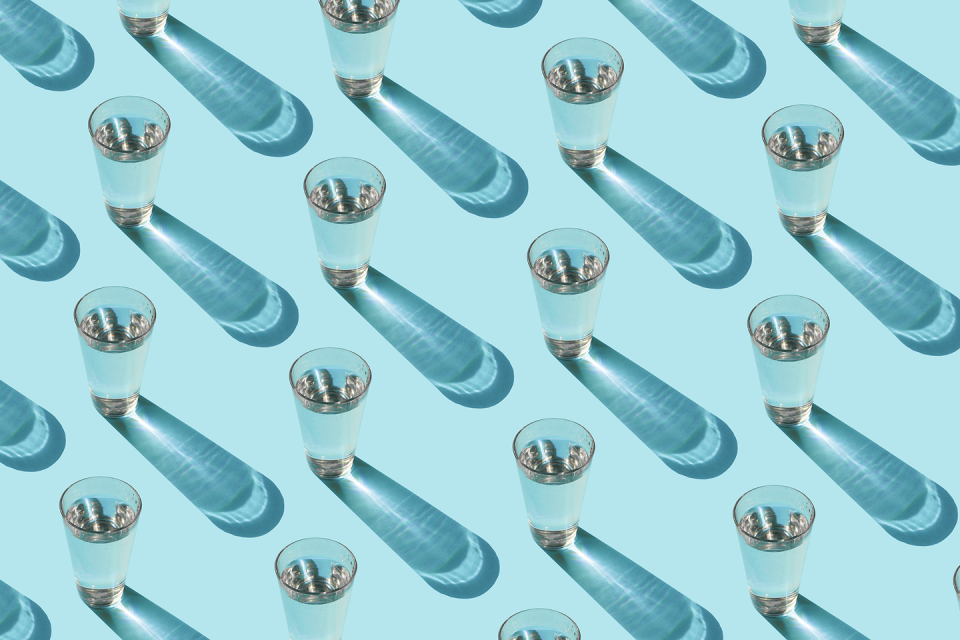9 Surprising Explanations for Why You're Always So Thirsty

There's nothing more satisfying than downing a glass of cool water when your throat is seemingly on fire. But if you find yourself unable to quench that urgent sense of thirst — whether you've worked your way through eight or eighteen cups of water in a given day — there may be a larger issue at hand. Feeling super thirsty is totally normal if you've just powered your way through a long workout, have spent the day outside under a hot sun, or are working on upkeep around the house (dehydration can manifest itself in cramps or fatigue as well). But endless thirst isn't something that anyone should be living with in the long run.
Many people sip on water throughout the day, thinking they're sufficiently hydrated; but for the majority, the simplest explanation for feeling thirsty is just that they're not drinking enough. "You want to aim for half of your body weight in ounces of water each day," says Stefani Sassos, MS, RD, CDN, the Good Housekeeping Institute's registered dietitian, highlighting a rule of thumb that most can stick to. "If you weigh 160 pounds, as an example, you'll want to aim for about 80oz based on that math — just about 10 cups of water a day. Get from ounces to cups by simply dividing by eight, since 8oz is one cup."
If you find that your water intake is close or even above that recommended benchmark, it's time to consider other factors that have you reaching for your water bottle. Believe it or not, it's a condition all its own: polydipsia. "It's an excessive amount of not only thirst but drinking, and it indicates a pathology, which is much different than dehydration," says Ron Weiss, M.D., a board-certified internist and assistant professor of clinical medicine at Rutgers' New Jersey Medical School. Your diet may play a role in potentially developing polydipsia or related symptoms, certainly, as can other lifestyle factors; sometimes, thirst may be an indicator of a larger issue that requires a doctor's help. Below, we review nine more common reasons for constantly feeling thirsty, plus expert tips to finally help you quench that thirst.
Reminder: Consult your physician right away if you're experiencing excessive thirst as it could be a signal for an underlying condition.
You've recently moved or started a new hobby.
Let us explain: If you normally have had plenty to drink throughout your routine, but that routine has adapted in some way recently, it may require you to increase the amount of water you consume in a given day. Most often, people don't account for weather changes, new exercise routines, or a change in career and new daily physicality into upping their water intake. In hotter climates where you may sweat more, or if you've recently started playing a new sport or joined a new club, it's crucial to drink more throughout the day, Sassos explains — especially for seniors and the elderly.
You may want to reevaluate your water intake if you are experiencing these symptoms regularly:
Reduced sweating.
Reduced urine production.
Skin elasticity issues.
Confusion, lightheadedness, or fainting. (But first, talk to your doctor and make sure these symptoms aren't due to a medical issue!)
You've recently started a new diet.
Especially one that's angled for dramatic weight loss. "In general, low-carb or keto diets put you at greater risk for dehydration. Carbohydrates retain fluids and electrolytes, so when you drastically decrease the amount of carbs in your diet, that results in extra water being removed through your urine — or more trips to the bathroom," says Sassos, who has previously declared keto diets as one of the worst diets for many more reasons.
If you're new to a diet where you're drastically reducing or eliminating a food group entirely, it's important to remain focused on how much water you drink every day, because of that risk of low-carb diets leading to dehydration (and if left unchecked, kidney stones or constipation). "The most important thing, regardless of your diet, is to drink according to your thirst and listen to your body," Sassos adds. "You can also look at your urine to gauge your hydration; you want to see a light lemonade or pale straw-type color, which indicates you are properly hydrated."
You could be eating way too much salt.
It's also important to take a closer look at the food you're already eating. Just like your body processes excess glucose, your kidney processes excess salt and redirects it into your urine, which in turns pulls liquids away from your blood. "And then you would pee an excessive amount," Dr. Weiss says, adding that this process can happen in as little as a few hours if you've eaten a high-sodium meal. "Then, your brain would make you feel thirsty, to take back free water."

While it's natural (and good!) to drink lots of water after enjoying a salty meal, if you're frequently eating meals that are overly high in sodium, chronic dehydration may not be the only condition you could battle later on. Overdoing it on sodium can lead to high-blood pressure over time, and may also lead to kidney or heart damage in the long run. The American Heart Association recommends that Americans eat less than 1,500mg of sodium each day, so if you already know you may be doubling or tripling that limit, talking to your primary care provider about a low-sodium diet is a good idea.
Think salt might be the culprit, but aren't sure? Sassos advises doubling down on fruits and vegetables for a couple weeks to see if your frequent thirst disappears. "Fruits and vegetables naturally have a ton of water content and can help you reach your hydration goal without having to down an extra bottle," she says. "Watermelon, celery, and cucumbers are some of my favorites, and all are over 90% water."
You're mistaking thirst for hunger.
We're sure that you've heard that hunger can sometimes be mistaken for thirst, but did you know that the opposite is also true? "Many symptoms of dehydration, like fatigue and dizziness, can feel similar to feelings of hunger," Sassos says. "It's very important to listen to your body and get in touch with your hunger and thirst cues."
If you've downed a few glasses of water and can't get rid of the feeling that you should be drinking more, it might be time to reach for a snack or think about lunch or dinner. "But if you just had a balanced meal or snack… reach for a glass of water [first] to see if hydration is what you really need."

You could be fighting a bad case of dry mouth.
It may be due to new medication or because of high-blood pressure (or a myriad of other health reasons), but dry mouth can also be mistaken for thirst. Dr. Weiss points out that caffeine intake, smoking, and over-the-counter antihistamines or cold medicine can aggravate a case of dry mouth. But medical experts at the Mayo Clinic say that those suffering from dry mouth can get some relief by chewing sugar-free gum to stimulate saliva, in addition to sipping water as frequently as possible. There are medications that can help relieve dry mouth if neither of these solutions work.
You may be prediabetic or unknowingly suffering from type 2 diabetes.
When it comes to Dr. Weiss's patients, he says that those who have complained of excessive, constant thirst often end up having complications related to diabetes. Mostly, type 2 diabetes, otherwise known as diabetes mellitus in the medical community, as the kidneys are under more stress to absorb excess glucose, Dr. Weiss explains. When the kidney can't keep up, the glucose ends up in your urine, dragging water along with it, making you feel awfully dehydrated. It can happen quite regularly if your diabetes is undiagnosed or undetected.
You're eating or drinking too many foods high in diuretics.
Diuretic foods (like celery or asparagus) or drinks can work to make you thirsty over time because they encourage more urination than usual. "Diuretics force sodium to be eliminated by your kidneys… it's the laws of osmosis, so you lose water in the process, and then your brain signals that you need more water," Dr. Weiss explains. When it comes to diuretic supplements, he says, "It's the physician's job to make sure the patient isn't getting too much diuretic… It'd be drying them out, making them thirsty, if they were being overmedicated with diuretics."
Sassos explains that caffeinated beverages are known to be mildly diuretic, and if you are drinking too much coffee or soda over the course of the day, it may trigger innate thirst. "I recommend no more than 400mg of caffeine daily for healthy adults, or less, if you're sensitive to caffeine like I am," she says. Alcohol is also a diuretic and can be equally harmful for your body, especially if you already aren't getting enough water during the day.

Your organs could have trouble processing water.
Sometimes, you can be drinking TOO much water — yes, really! "Overhydration is a real issue, though less common because normal healthy kidneys easily excrete excess water," Sassos says. "It's more common a problem for people who have kidney issues and can't excrete urine normally." If you have any chronic condition that affects your kidney, your doctor may have already spoken to you about adapting your hydration and beverages you should avoid (and if you haven't had that discussion yet, it's time!).
Kidneys aren't the only organ that can influence your thirst and water regulation in your body. Dr. Weiss points out that your thyroid (which also can influence your appetite, temperature, and even your hair) can greatly impact how thirsty you feel if the gland's hormone production is impacted. Hyperthyroidism and other thyroid issues can contribute to period irregularity and anxiety, among other things, all of which influences thirst. The National Institutes of Diabetes and Digestive and Kidney Diseases also report that those with thyroid issues may also be more likely to suffer from type-1 diabetes, anemia, and other conditions, which may be the root cause of raging thirst.
You may be experiencing a rare hormone disorder.
It's much more rare than having issues related to type 2 diabetes, but some individuals may develop a disorder that doctors know as diabetes insipidus, which triggers a sustained imbalance of fluids in your body. "It has to do with an inappropriately high production rate of a hormone called ADH, which stands for antidiuretic hormone, and how it affects your brain overall," Dr. Weiss explains. "What this does is, it forces your kidney to dump water out of your body, beyond what's appropriate; then, this hormone abnormality would force the person to seek water, like with a raging thirst. I've only confirmed it twice in my life, as it's relatively rare."
Those with diabetes insipidus would also be frequently urinating. But you wouldn't be able to confirm the condition unless you discussed the issue and had a full set of blood work done by your provider — which hopefully would be in your plans long before you ever were worried about diabetes insipidus.
You Might Also Like


